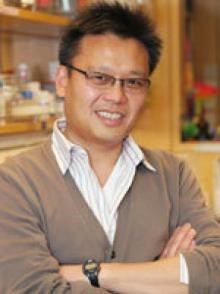
The eras of molecular biology and genomics have given us an unprecedented picture of the molecular components underlying living systems. Nonetheless, our understanding of how these components are assembled to generate precision physiological systems remains far less developed. To approach this problem, we and others have been using synthetic biology methods to empirically explore how molecular components can be used to construct novel cellular functions. Using these approaches, we have shown that we can reprogram living cellular machines that carryout new novel precision functions, including therapeutic immune cells that precisely recognize and eliminate cancer cells, or cells that self-organize into tissues. By merging our understanding of cellular machines with our knowledge of our bodies and its diseases, we envision the development of a mature field of cell engineering with a toolbox of optimized molecular parts and circuit architectures, as well as disease and "GPS" sensors that allow the cell to target specific sites in the body or brain. Such a platform will allow us to rapidly and flexibly prototype and design cells that can identify sites of disease or degeneration and execute precisely targeted and controlled therapeutic actions.
Prof. Wendell Lim’s laboratory is interested in the logic of cell signaling systems: understanding how the networks of signaling proteins found in eukaryotic cells have evolved to allow cells to make complex behavioral decisions. They use two broad approaches to attack this problem. First they use biochemistry, cell biology, genetics, and computational biology to dissect the mechanisms of signaling proteins and networks. They are particularly interested in understanding how nature's toolkit of modular domains are recombined through evolution to generate new and diverse response behaviors. Second, they use synthetic biology: the redesign of biological systems. In particular, they are using various methods to create novel or modified signaling proteins and pathways, both to systematically understand network structure/function relationships and to develop engineered research tools and novel biotechnological and therapeutic applications.
For details of his research and recent publication, please visit HERE
© Copyright International BioDesign Research Conference - All rights reserved